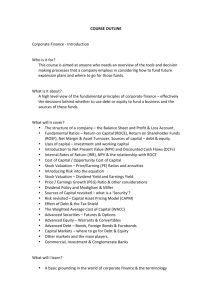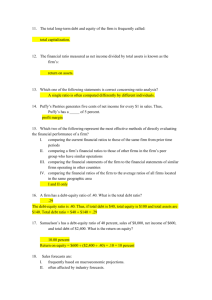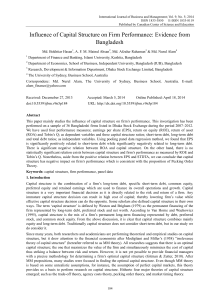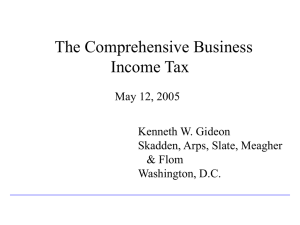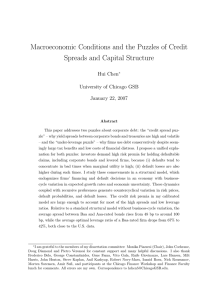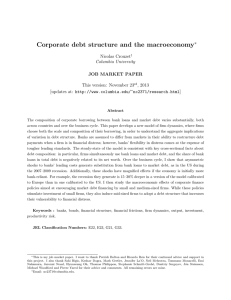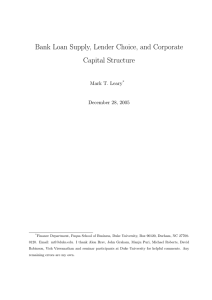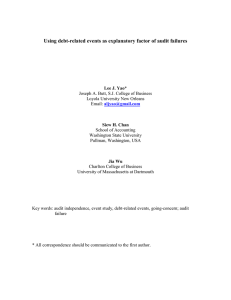Taxes and Corporate Finance Bill Gentry Williams College
advertisement
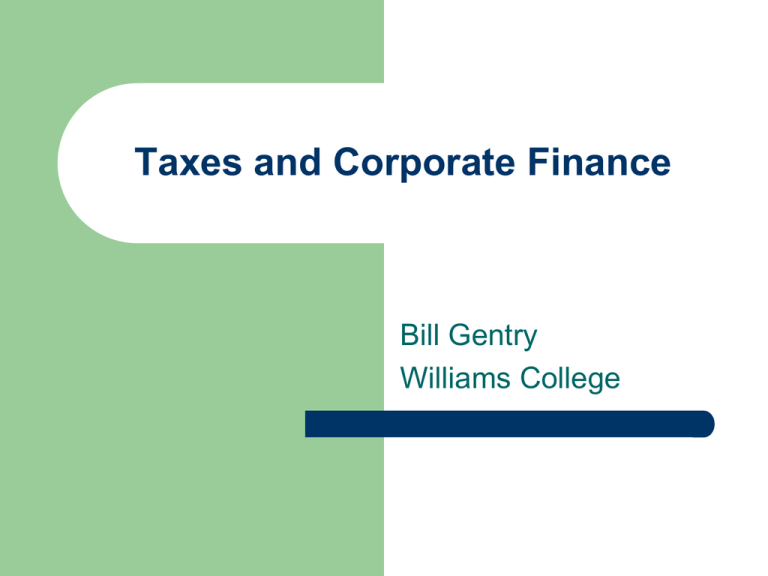
Taxes and Corporate Finance Bill Gentry Williams College Differential Taxation of Debt & Equity Debt – – Interest expense is deductible by firm Interest taxable to investor Equity – – Return taxed at corporate level Preferential treatment for investors Rates & Deferral Possible Corporate Tax Reforms Integration of entity & investor taxes Lower rates, (possibly) broader base Either reform can narrow the tax differential between debt & equity Distortions from Differential Taxation of D & E Incentive to borrow: increased corporate debt – – Increased costs of financial distress Less robust in financial crises Tax preference for debt favors firms with higher debt capacity – – Tangible vs. intangible assets Older vs. newer firms Tax Arbitrage: Transactions at the Margin Borrow: Tax deductible Invest: Fully taxable? No big deal Partially taxable? Negative ETR? “Partially taxable”: – – – – Tax-exempt bonds Foreign subsidiaries (in some cases) Accelerated depreciation Pension funding (for those few DB plans left) Tax Reform & Tax Arbitrage Lower tax rate: fewer arbitrages will be profitable Revenue consequences of tax reform are challenging to estimate Narrowing Tax Rate Differentials Across Firms Lower tax rates could lead to less dispersion in tax rates across firms – Dispersion can come from loss positions Interfirm tax arbitrage – – Leasing M & A activity

